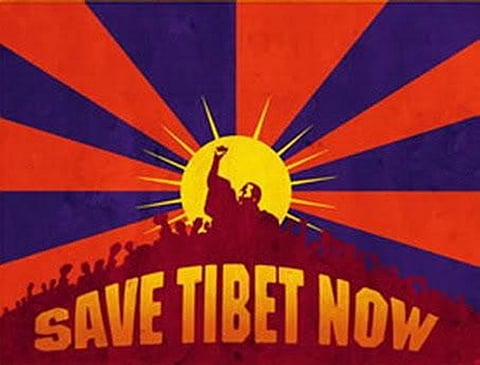
- Home
- NewsGram USA
- India
- न्यूजग्राम
- World
- Politics
- Opinion
- Entertainment
- On Ground
- Culture
- Lifestyle
- Economy
- Sports
- Sp. Coverage
- Misc.
- NewsGram Exclusive
- Jobs / Internships
- Interview

By Sagar Sethi
'Mujhe Indian citizenship nahi chahiye' (I do not want an Indian citizenship).
'Agar mein le loonga, toh mein Indian ban gaya. Mera baccha hoga aur aise aise hi Tibet –ka culture khatam ho jayega' (Once I take it (Indian Citizenship), I will become an Indian. I will have kids, and they will someday take it too; and that is how the Tibetan culture would fade!).
Tsering Phuntsok has been residing in Majnu ka Tila for the last thirty nine years. Well versed in speaking the old Tibetan language, it seems his birth in India did not impinge on his cultural rearing.
He did express hope to see his home in Tibet, but not with much optimism, as he tells us, 'Koi guarantee nahi hai. Humaara generation mein toh mushkil hai' (There is no assurance. In my lifetime, a free Tibet is almost impossible).
Then why fear? Become a citizen of India, and live Tibet style.
Tenzin's father journeyed to India more than fifty years ago; for religious reasons and settled down in Majnu ka Tila. This nineteen year old Tibetan refugee reveals how aloof he feels from his motherland – 'I don't want to see Tibet, as only the Han Chinese live there,' says Tenzin.
Also born in India, Tenzin has been groomed within a westernised India; a diversely religious, caste-ridden society that interacts constantly with the ideals and notions of western modernisation and models of development.
He tells us how he can't speak the Tibetan language, unlike his father. Instead he is well versed in English, and pursues a career in film making. He even prefers eating his chow with a fork, not with chopsticks!
There are many others like Tenzin in Majnu ka Tila. We don't know how far Tibet's culture has already faded.
Tenzin's isolation from Tibet's culture –Andrew Martin Fischer writes in his The Disempowered Development of Tibet in China– derives mostly from the fact that he cannot speak the Tibetan language. Is linguistic unity the only hope?
In his 'Preserving a Heritage Facing Threat of Extinction', Geshe Lhakdor writes, "Today we can proudly say that the entire Tibetan culture in its authentic form is available in exile."
The significance of preserving this 'rich, compassionate and non-violent' Tibetan culture, he further writes, becomes even more significant in this "conflict ridden world, where people pay more importance primarily to financial power and military might."
"They bring in big weapons and tanks…special air forces. We are Buddhist monks, we have no weapon, and we have no military. Only Buddhist texts, that's all." (Cited from the video below)
For more, read:
